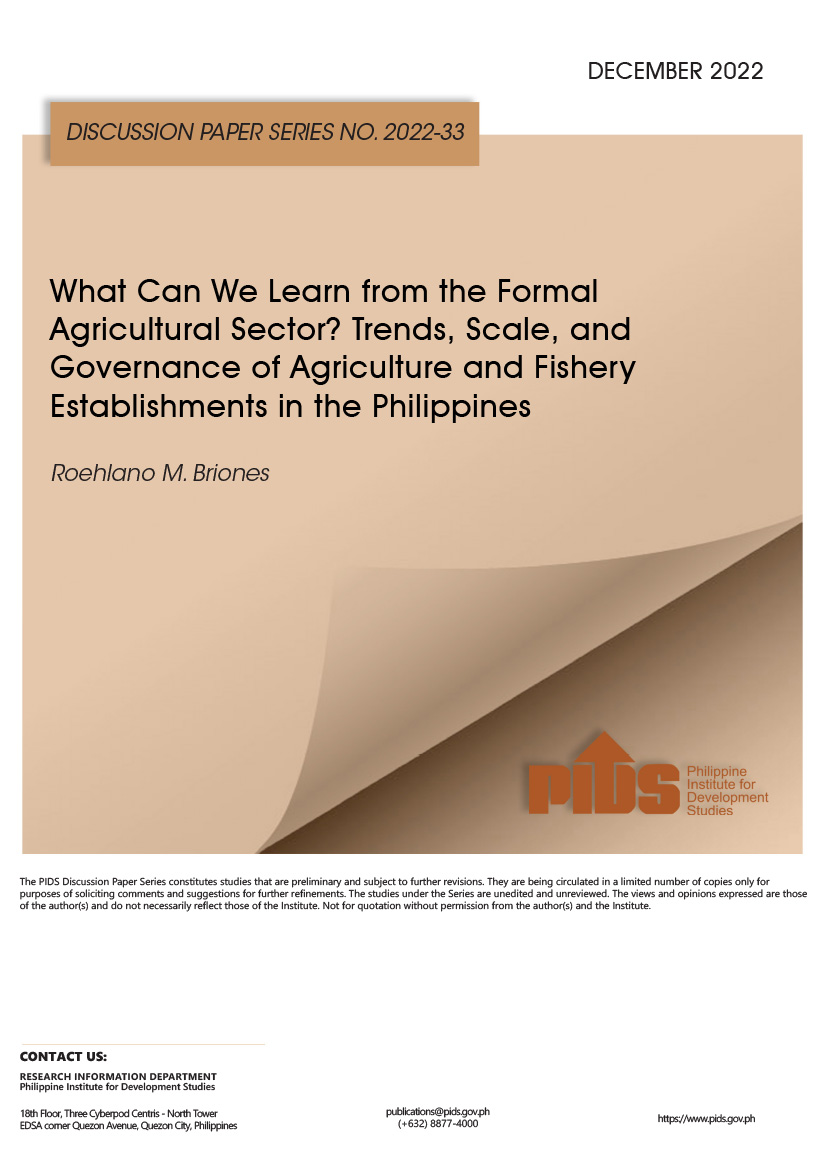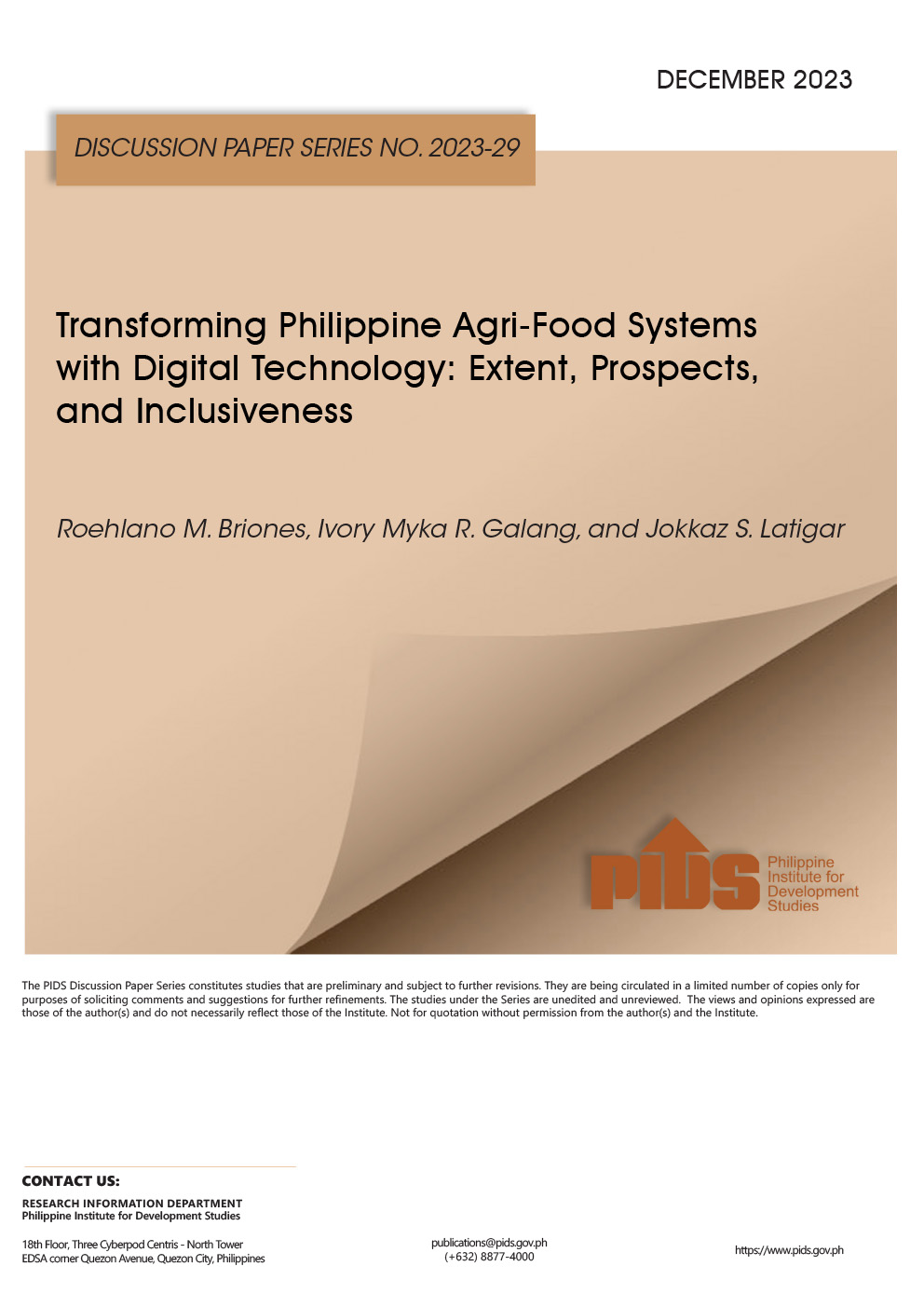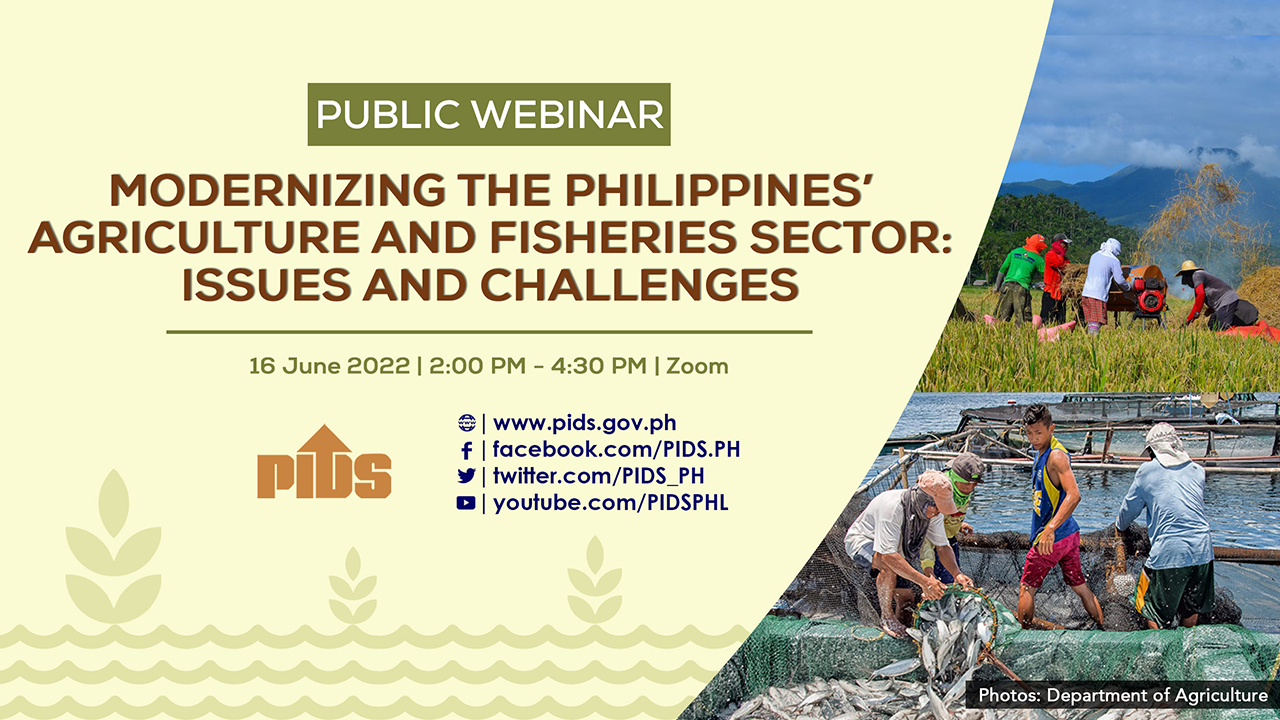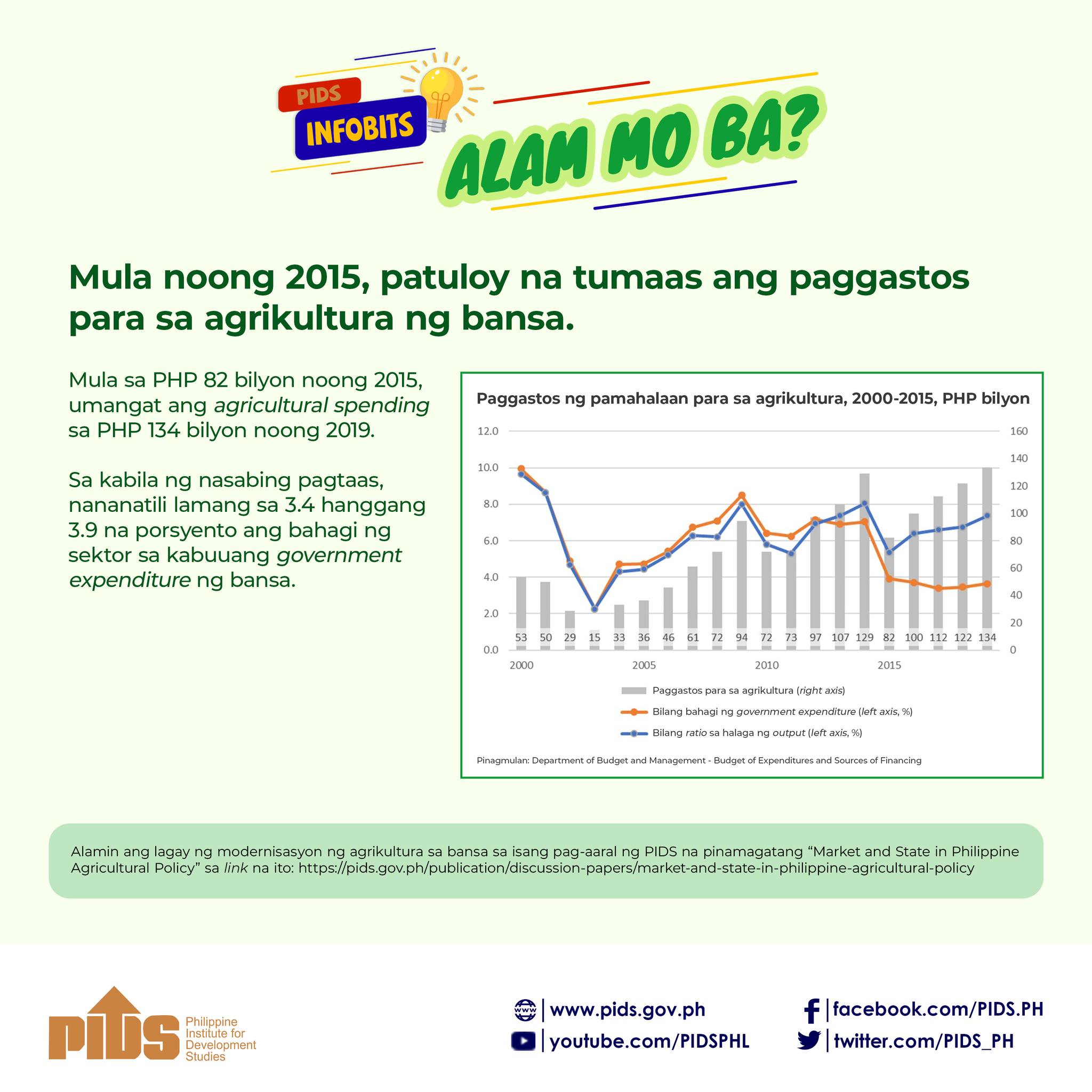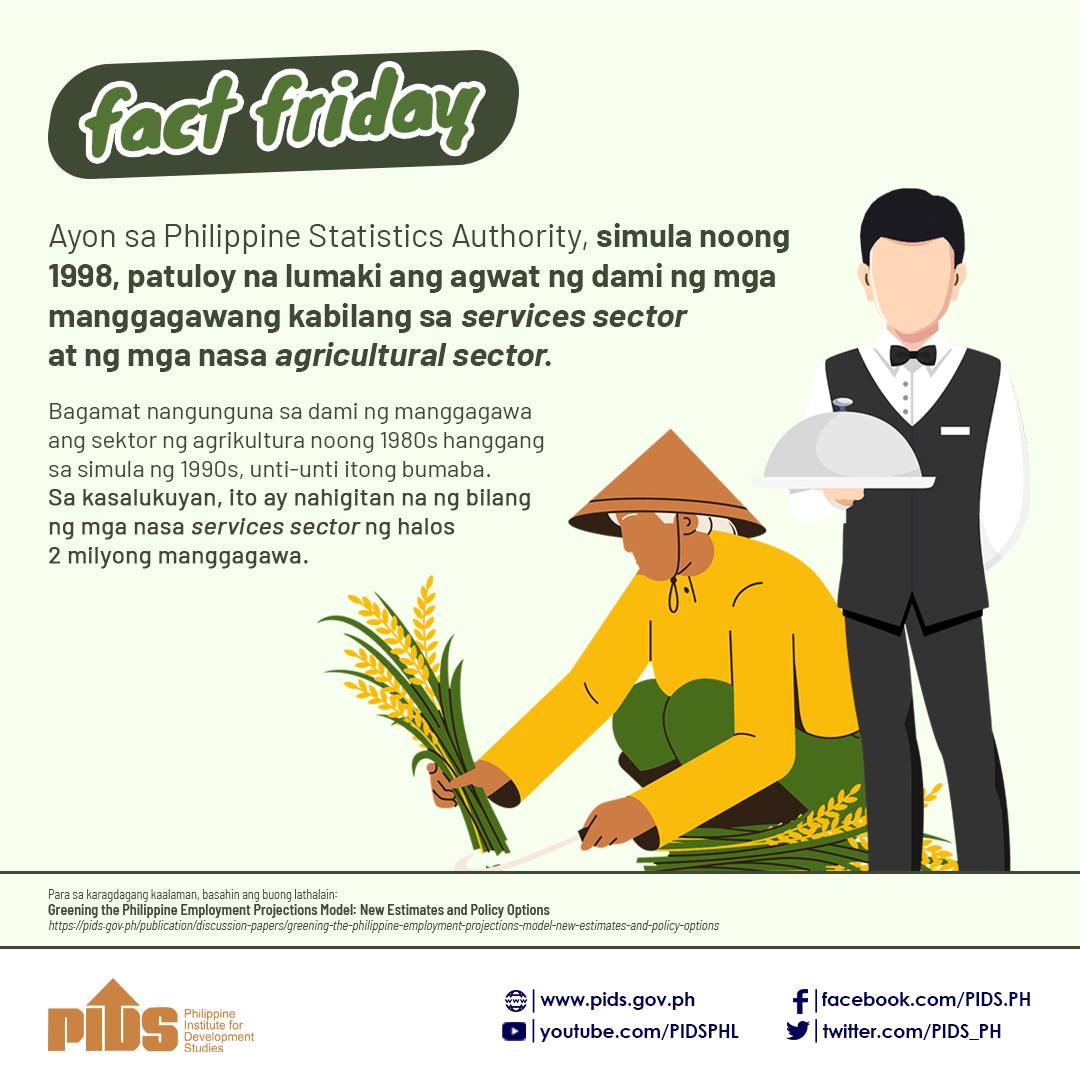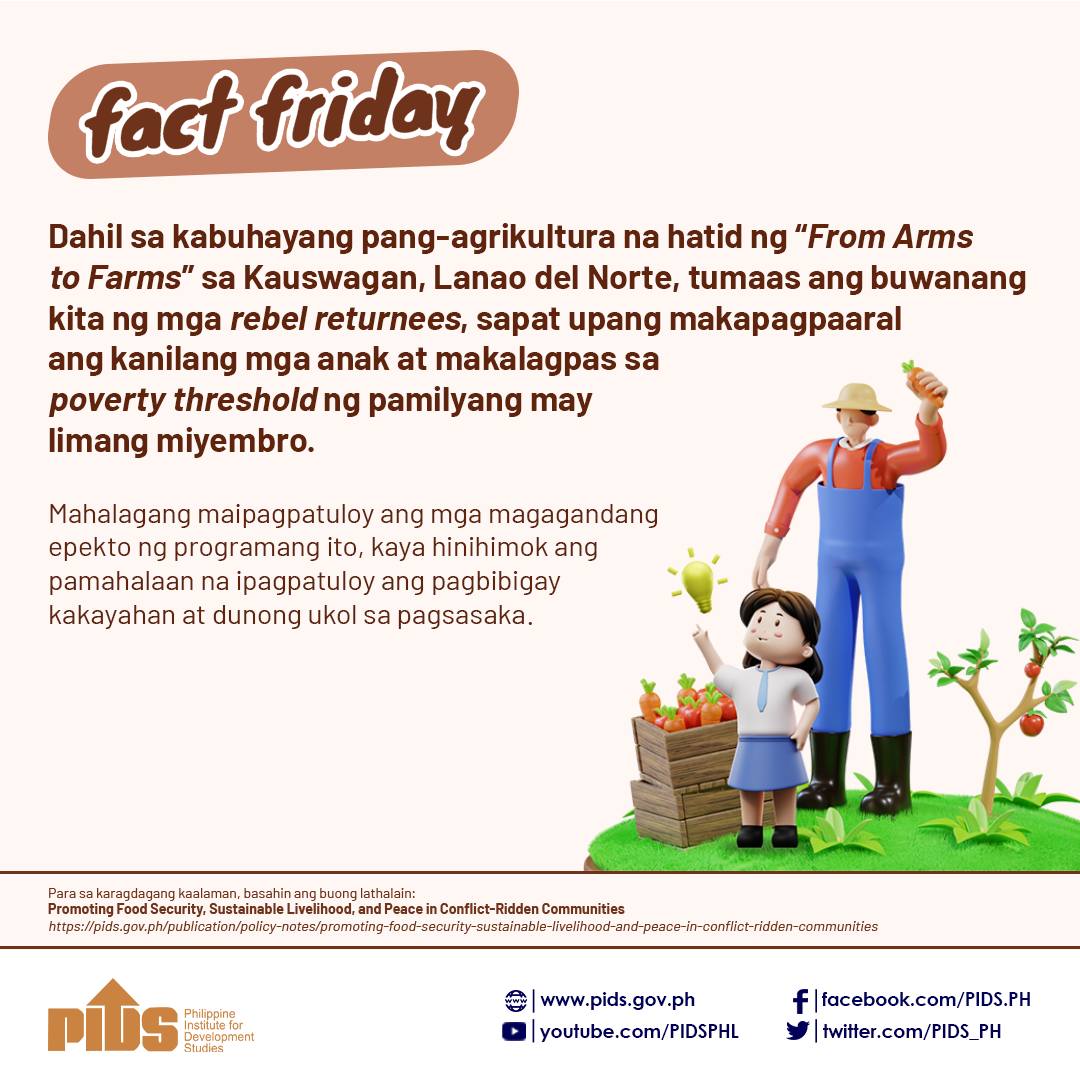The Philippines’ Agriculture and Fisheries Modernization Act (AFMA) identifies one of the modernization objectives as “to encourage horizontal and vertical integration, consolidation, and expansion of agriculture and fisheries activities, group functions and other services through the organization of cooperatives, farmers’ and fisherfolk’s associations, corporations, nucleus estates, and consolidated farms” (Section 3.d). Consolidation is an issue in developing countries, including the Philippines, where agriculture is dominated by small family farms. Consolidation will also entail formal recognition of farm enterprises, in any of the possible modalities of landholding, from sole proprietorships to partnerships, corporations, cooperatives, and other private institutions. Organizing and registering smallholders offers access to capital, government programs, business services, and markets.
Based on official Census of Philippine Business and Industry data for 2006, 2012, and 2018, the study finds the following: Over time, the size of the formal agricultural sector has been increasing, as well as that of Crops and Animal raising. Likewise, formal establishments have been showing increasing output per worker but not profitability nor innovation. Government support for privately-owned establishments is insignificant, with no clear trend over time nor preference for a legal organization. Based on production function analysis, economies of scale exist in the operation of agricultural establishments. However, there is insufficient evidence to show that cooperatives exhibit larger size, greater inclusiveness, and similar economic performance, such as profitability. The study concludes with some implications for policy.
Comments to this paper are welcome within 60 days from the date of posting. Email publications@pids.gov.ph.

